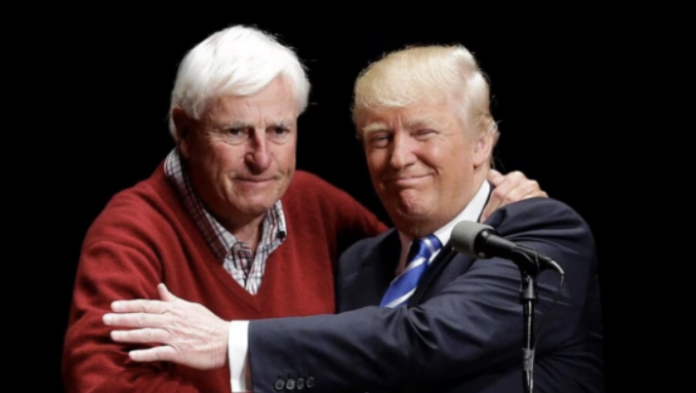Bob Knight, the passionate coach who secured three NCAA national titles during his tenure at Indiana University, passed away on Wednesday at the age of 83 in his Bloomington, Indiana residence.
While the exact cause of his death remains undisclosed, it’s worth noting that Knight had battled dementia and faced declining health in recent years. He was known for his fiery nature, often clashing with administrators, faculty members, security personnel, the media, his own players, and even occasional students.
Commencing his coaching journey at the U.S. Military Academy at West Point, Knight clinched championships with the Hoosiers in 1976, 1981, and 1987. Additionally, he earned another title with Ohio State in 1960, serving as a sparingly utilized player on a team led by future Hall of Fame athletes Jerry Lucas and John Havlicek.
Knight, who served as the Hoosiers’ coach from 1971 until his dismissal in 2000 due to an on-campus altercation with an Indiana student, concluded the final 6 ½ seasons of his coaching tenure at Texas Tech. He retired in 2008 with a total of 902 wins, which at that time was the highest number of victories in NCAA Division 1 history.
Currently, he occupies the fifth position on the all-time wins list, as other coaches, including the now retired Mike Krzyzewski of Duke, who both played for Knight at West Point and later served as his assistant, have surpassed his record.
Despite the challenges of playing under his coaching, as exemplified by Larry Bird’s brief stint before his successful career at Indiana State, Knight’s Indiana squads consistently maintained a winning record. They secured 11 Big Ten titles, made appearances in five Final Fours, and notably, his 1976 team remains the last in NCAA history to complete an entire season undefeated, achieving a perfect 32-0 record.
Remarkably, his teams in the 1974-75 and 75-76 seasons collectively posted an impressive 63-1 record, with the single loss occurring in the 1975 NCAA Tournament’s Elite Eight.
During his tenure at Indiana, Knight’s coaching record stood at 659-242. He maintained a commitment to academic excellence, ensuring that his players attended classes and, when they completed their four-year tenure, often earned their degrees. Despite his strong reservations about the NCAA as an organization and his inclination to challenge authority, Knight remained stringent in adhering to NCAA regulations.
Robert Montgomery Knight, born in 1940 in Massillon, Ohio, had a notable basketball career. He played for Ohio State under legendary coach Fred Taylor, reaching three consecutive NCAA Championship games during his college years. While they won the first game, they lost the next two to Cincinnati, led by future Hall of Famer Oscar Robertson.
After a brief stint as a junior varsity coach, Knight joined the Army and became an assistant coach at West Point. At 24, he became the head coach, winning 102 games in six seasons, where his reputation for a volatile temper began.
In 1971, Indiana hired Knight, where he consistently achieved over 16 wins per season during his nearly three-decade tenure, although his coaching career had its share of challenges and controversies.
In 1979, while coaching the U.S. team at the Pan American Games in Puerto Rico, Bob Knight encountered legal issues when he was charged, put on trial, and found guilty in his absence for assaulting a police officer before a practice. Attempts to extradite him were later abandoned.
During his second national championship-winning campaign in 1981, Knight was involved in a confrontation with an LSU fan at the Final Four who alleged that Knight had placed him inside a garbage can. Four years later, in a game against Purdue, Knight became infamous for hurling a chair across the court after receiving a technical foul. This resulted in his ejection from the game and a one-game suspension imposed by the Big Ten.
In a 1988 interview with NBC’s Connie Chung, Knight was asked about his stress management techniques.
After retiring from coaching, Knight dedicated multiple seasons to a role as a studio analyst and providing color commentary for ESPN.
Surviving him are his wife, Karen Vieth Edgar, and his two sons, Pat and Tim, from his initial marriage.
Knight made it clear that he departed this world without any lingering regrets.








